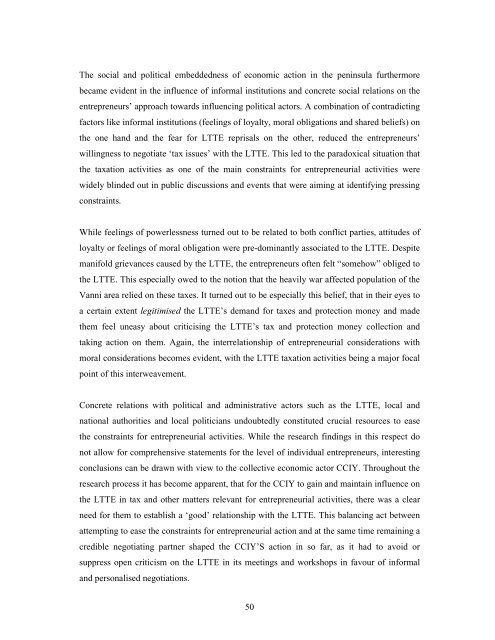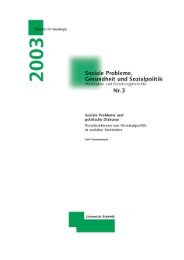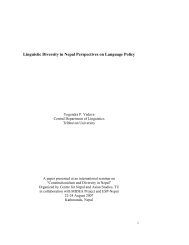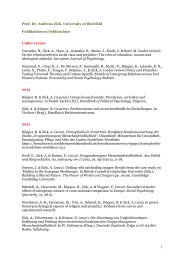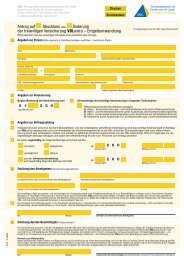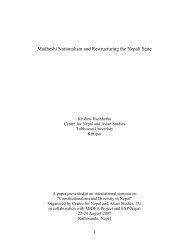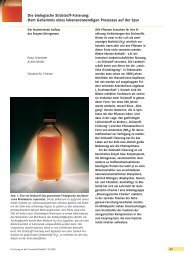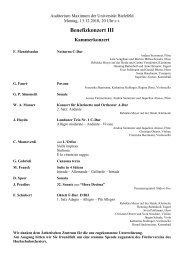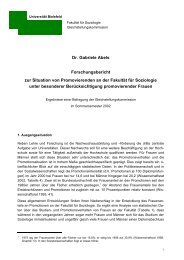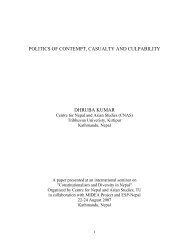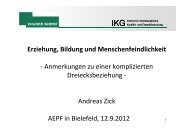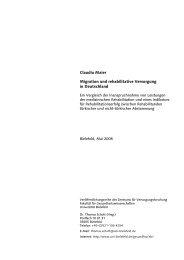Student Research Project Sri Lanka 2002 Supervisors: Prof. Dr ...
Student Research Project Sri Lanka 2002 Supervisors: Prof. Dr ...
Student Research Project Sri Lanka 2002 Supervisors: Prof. Dr ...
Create successful ePaper yourself
Turn your PDF publications into a flip-book with our unique Google optimized e-Paper software.
The social and political embeddedness of economic action in the peninsula furthermore<br />
became evident in the influence of informal institutions and concrete social relations on the<br />
entrepreneurs’ approach towards influencing political actors. A combination of contradicting<br />
factors like informal institutions (feelings of loyalty, moral obligations and shared beliefs) on<br />
the one hand and the fear for LTTE reprisals on the other, reduced the entrepreneurs’<br />
willingness to negotiate ‘tax issues’ with the LTTE. This led to the paradoxical situation that<br />
the taxation activities as one of the main constraints for entrepreneurial activities were<br />
widely blinded out in public discussions and events that were aiming at identifying pressing<br />
constraints.<br />
While feelings of powerlessness turned out to be related to both conflict parties, attitudes of<br />
loyalty or feelings of moral obligation were pre-dominantly associated to the LTTE. Despite<br />
manifold grievances caused by the LTTE, the entrepreneurs often felt “somehow” obliged to<br />
the LTTE. This especially owed to the notion that the heavily war affected population of the<br />
Vanni area relied on these taxes. It turned out to be especially this belief, that in their eyes to<br />
a certain extent OHJLWLPLVHG the LTTE’s demand for taxes and protection money and made<br />
them feel uneasy about criticising the LTTE’s tax and protection money collection and<br />
taking action on them. Again, the interrelationship of entrepreneurial considerations with<br />
moral considerations becomes evident, with the LTTE taxation activities being a major focal<br />
point of this interweavement.<br />
Concrete relations with political and administrative actors such as the LTTE, local and<br />
national authorities and local politicians undoubtedly constituted crucial resources to ease<br />
the constraints for entrepreneurial activities. While the research findings in this respect do<br />
not allow for comprehensive statements for the level of individual entrepreneurs, interesting<br />
conclusions can be drawn with view to the collective economic actor CCIY. Throughout the<br />
research process it has become apparent, that for the CCIY to gain and maintain influence on<br />
the LTTE in tax and other matters relevant for entrepreneurial activities, there was a clear<br />
need for them to establish a ‘good’ relationship with the LTTE. This balancing act between<br />
attempting to ease the constraints for entrepreneurial action and at the same time remaining a<br />
credible negotiating partner shaped the CCIY’S action in so far, as it had to avoid or<br />
suppress open criticism on the LTTE in its meetings and workshops in favour of informal<br />
and personalised negotiations.<br />
50


